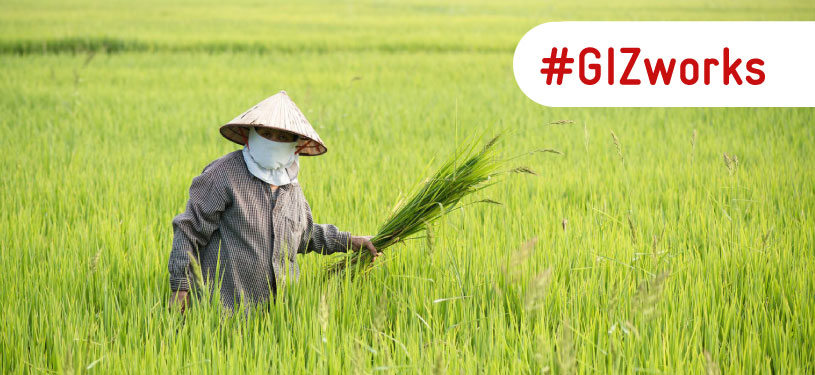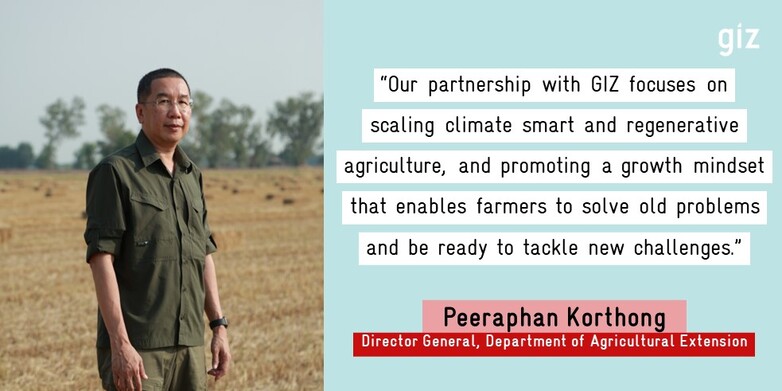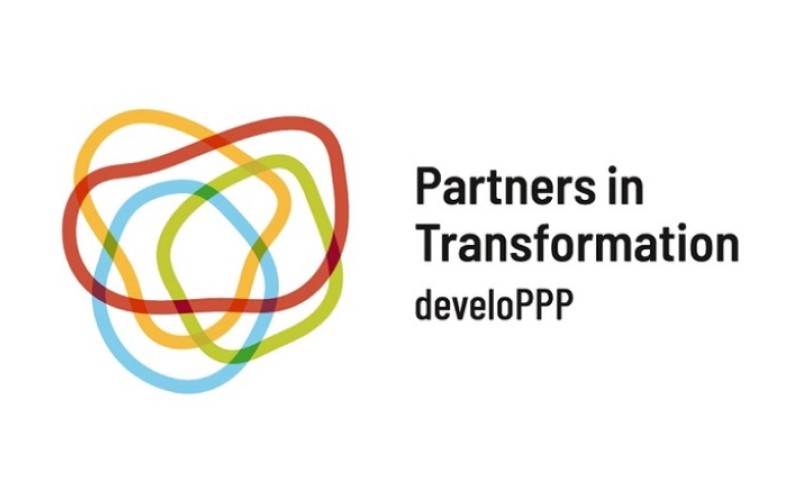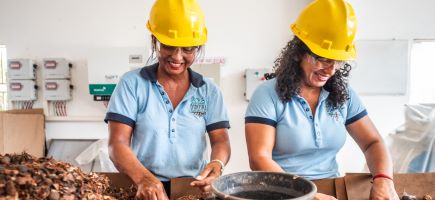
03.07.2024
Climate-friendly rice cultivation
GIZ works! Climate-friendly rice production reduces greenhouse gas emissions
Rice is a staple food for around half the world's population. What many people don't realise, however, is that conventional rice cultivation has a significant yet often overlooked impact on the climate. By the time one kilo of Asian rice reaches the supermarket shelves, around three kilos of greenhouse gases have been released – primarily methane and carbon dioxide. Only eight per cent of these emissions come from long-distance transport; more than half come from conventional wet rice cultivation – a method that creates ideal conditions for methane-producing bacteria in the paddies. Worldwide, rice cultivation thus accounts for between 10 and 17 per cent of global methane emissions. As a driver of climate change, this gas is 25 times more powerful than the more prominent CO2. In South-East Asia, the rice sector emits as much greenhouse gas as the entire transport sector.
Targeted support for climate action
Given this urgent situation, the Deutsche Gesellschaft für Internationale Zusammenarbeit (GIZ) GmbH has signed a pivotal funding agreement in partnership with the Green Climate Fund (GCF). The programme, which is funded by Germany's Federal Development Ministry, is supporting more than 250,000 small farmers in Thailand in acquiring knowledge on more sustainable farming methods, thus saving the equivalent of 2.44 million tonnes of CO2. As part of this, GIZ works closely with the private sector, Thailand’s Ministry of Agriculture and Cooperatives and other local institutions. One of them is the Department of Agricultural Extension. General Director Peraphan Kothong explains the joint task:

Positive results are already visible
Similar GIZ projects in Thailand have already delivered results: 35,000 farmers have already reduced their greenhouse gas emissions by an average of 21 per cent. At the same time, they have used fewer pesticides and increased their income by 20 per cent. International project partners such as PepsiCo, Mars, Ebro and Olam Agri are benefiting from the fact that more rice of a higher quality is available. The sustainably grown products, marked for instance with the Sustainable Rice Platform (SRP) label, are reaching international markets. There they are sold by large European supermarket chains such as LIDL in Germany and Albert Heijn in the Netherlands. This promotes the sustainability of supply chains. It also allows customers in Europe to make informed decisions in the supermarket aisles and thus actively support climate action.

